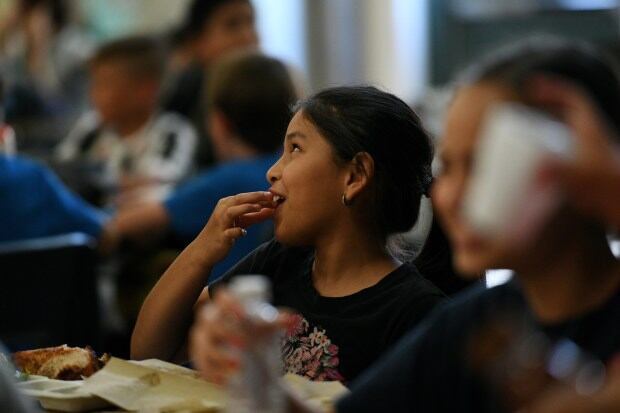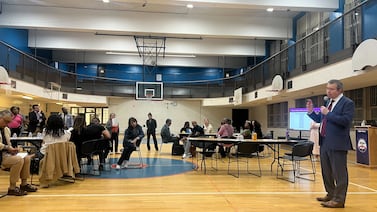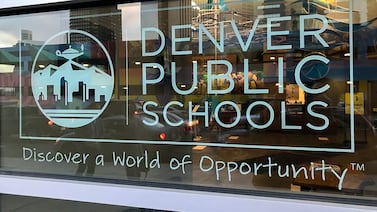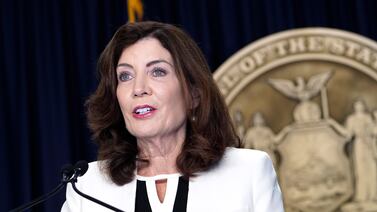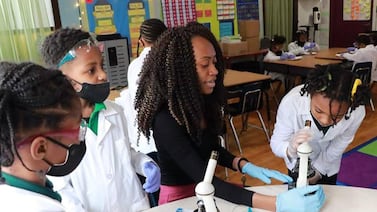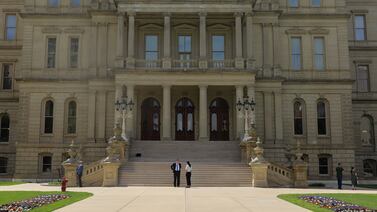With Colorado school buildings closed, and students learning remotely from home, it might seem that districts are saving money. But that’s not necessarily the case.
Denver Public Schools officials estimate the coronavirus school closures will cost the 92,000-student district $10.5 million this school year. That’s due to unplanned expenses, such as the purchase of 9,000 additional laptops for remote learning, and the loss of some revenue.
For instance, the district is not charging families tuition for preschool through the end of the school year, nor is it charging families for after-school child care.
The district also estimates it will lose out on $9.5 million in revenue from paid school lunches and federal reimbursements for subsidized lunches it won’t serve while schools are closed. Though the district is still getting reimbursed for the “grab-and-go” meals it is distributing, it is not serving nearly as many meals as it would if schools were open.
These types of expenses and losses are likely being incurred by districts around Colorado, even as they prepare for the possibility of major budget cuts next year.
The virus is expected to wreak havoc on the state’s finances, as coronavirus-related job losses and business closures cause declines in income and sales tax revenue. That will impact school districts that rely on state funding for a large portion of their budgets.
The Denver school board met last week to discuss options for reducing its spending next year. Many options, such as freezing teacher pay or merging small schools, are proving unpopular with parents and teachers, some of whom took to social media to ask the question: Can’t the district use the savings from this year’s school closures to fill next year’s budget gap?
But it appears there are no savings. Here are the reasons why:
The district is continuing to pay its employees, even if they’re not working.
Denver is continuing to pay more than 3,700 food service workers, custodians, maintenance workers, bus drivers, school security officers, and paraprofessionals, even though many of them are working reduced hours or not at all because they’re unable to do their jobs from home.
That’s a decision the district made early on to support its hourly-wage employees. The estimated cost of doing so through the end of the school year: about $29.3 million.
That $29 million was already included in this year’s budget, so it’s not an added expense. But continuing to pay all employees means the district is not saving money on salaries, which is the district’s biggest expense, accounting for more than 80% of its yearly budget.
The coronavirus has caused the district to incur additional expenses.
District officials estimate the additional expenses will total about $4.1 million this school year. They include $2.9 million to buy additional computers, which the district gave to students without devices at home, and $567,000 for hotspot devices for students without internet.
The district also estimates it will pay $267,000 in what it calls “thank you incentives” to hourly-wage food service workers, custodians, school safety staff, and bus drivers who work during the stay-at-home order cleaning schools or making and delivering “grab-and-go” meals. For example, food service workers are being paid an extra $5 an hour.
The district is also spending money on extra cleaning supplies and curriculum licensing.
The virus has caused the district to lose revenue.
The district will likely lose $13.2 million in revenue this school year, officials said. The biggest piece is the $9.5 million loss in revenue from school breakfast and lunch meals.
District officials also estimate Denver will lose $2.1 million in fees from after-school child care and activities, and $1.5 million in preschool tuition it’s not charging families.
The school closures will result in some cost savings, but not enough.
The savings are likely to total about $7 million, district officials said. For instance, the district will save about $3 million on private school bus transportation, and about $3.8 million on food. There may be additional savings on utilities and fuel, and some district departments may not spend their entire budget. But officials said those savings aren’t confirmed yet.
The Denver school board must pass a budget for next school year in June.


